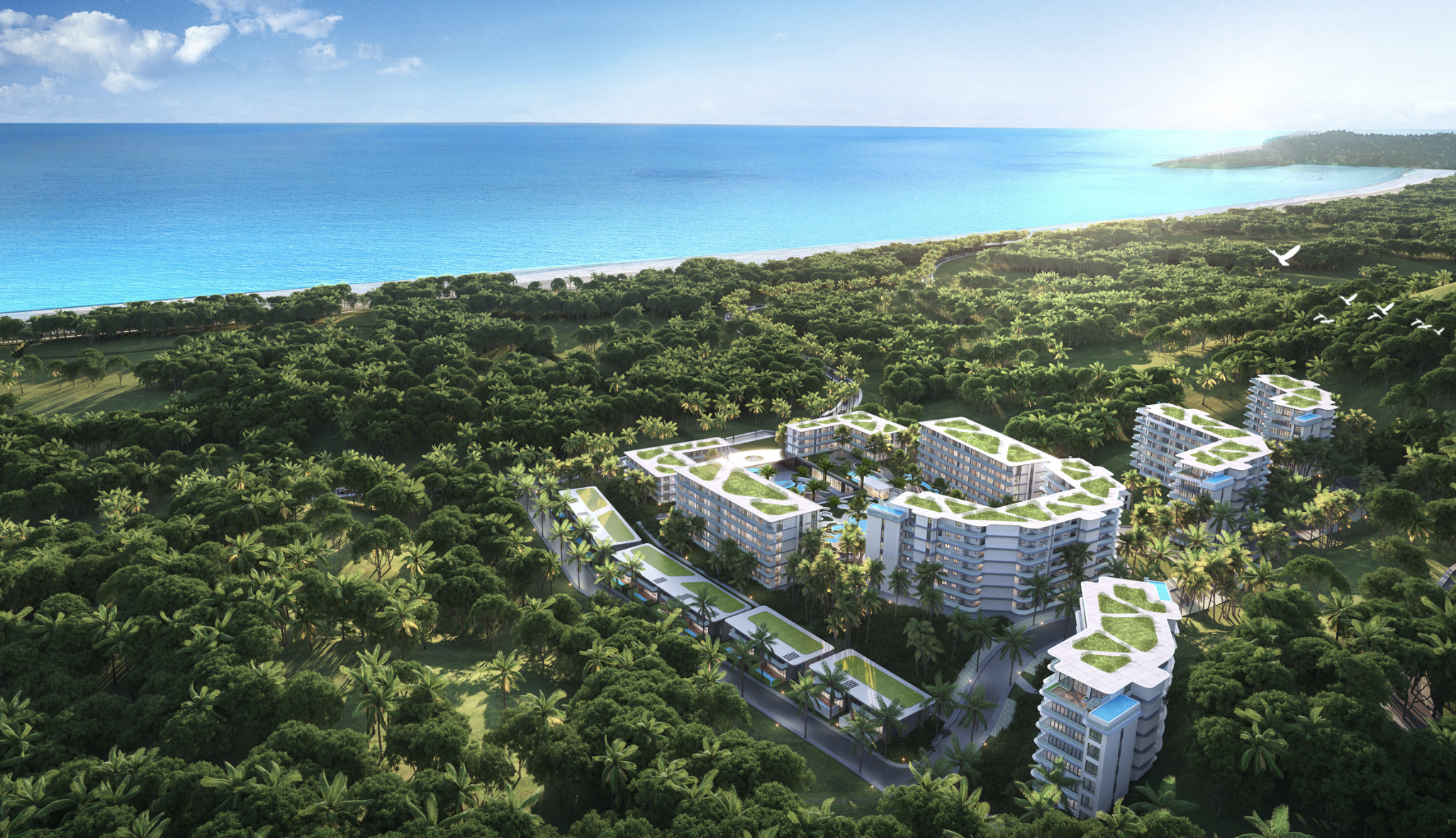Phuket Villas vs Condos in 2025: Which Investment Really Makes Sense?
Two Distinct Paths in Phuket
Phuket has emerged as one of Asia’s most dynamic resort property markets and a leading destination for Phuket property investment. Its appeal rests not only on its beaches and lifestyle, but also on its unusual breadth of investment choice. Buyers are faced with two very different routes: condos, such as Siamese Bangtao or Ayana Heights, and villas, such as Mouana Serenity Cherngtalay and Mouana Grande Chalong Bay.
Both options deliver lifestyle. Both can be convenient. But when you look closer, the real dividing lines are about ownership structure, space, liquidity, and financial returns.
Ownership: Simple Freehold vs Structured Leasehold
For foreigners, the easiest entry point into Phuket real estate is through condos. Governed by Thailand’s Condominium Act, they allow freehold ownership in your own name, provided the foreign quota (49% of the building) isn’t exceeded. This is perpetual, transferrable, and inheritable.
Villas, by contrast, sit on land, and foreigners cannot own land freehold. Buyers typically acquire the villa structure itself and secure land rights via a 30-year lease, often with renewal clauses, or through a Thai company structure. Both methods are legal when properly managed, but they add complexity.
If you want the full mechanics of how leasehold works, including renewals, staggered leases, and company structures, see our Villa Leasehold Deep Dive.
Space and Privacy: Different Versions of Lifestyle
Condos and villas both promise lifestyle, but they deliver it differently.
Condos maximise shared lifestyle: rooftop pools, gyms, concierge desks, shuttle services, co-working lounges. Ayana Heights and The Zero Bang Tao exemplify this turnkey model, appealing to buyers who want “lock-and-leave” simplicity.
Villas offer private lifestyle: land plots, gardens, private pools, multi-bedroom layouts. Mouana Serenity is designed for families or long-stay expats, while Mouana Grande targets high-net-worth buyers seeking prestige and space.
For some, lifestyle means a rooftop bar at your doorstep. For others, it means a private infinity pool, Phuket investment property offers both.
Liquidity and Resale
Liquidity is where condos pull ahead.
Foreign-quota condo units are consistently in demand and easier to resell. In Bang Tao, for example, freehold condos trade actively due to strong tourist flows and expat demand. Transfer is straightforward, and resale buyers can slot directly into the same ownership structure.
Villas, on the other hand, are less liquid. Resale depends on how many years remain on the lease and on the credibility of renewal clauses. Buyers also scrutinise whether the property is in a managed estate or a stand-alone leasehold. Premium villas can hold their value, but the pool of buyers is smaller and transactions take longer.
In short: condos are a more flexible exit strategy; villas suit investors with longer horizons.
Yields and Market Data
When it comes to returns, the numbers tell the story.
Phuket short-term rental yields typically range from 8-15% per year. Long-term rentals usually deliver around 6-8%. Bang Tao land prices have risen more than 140% in the past decade, with property values up over 100%. Other hotspots such as Patong and Kamala show similar trends.
Condos tend to generate steadier yields thanks to established rental pools and predictable tourist demand. Projects like Siamese Bangtao or Ayana Heights are marketed with built-in rental services to maximise occupancy.
Villas can achieve much higher nightly rates, large groups and families often pay premium ADRs (average daily rates) for private villas, but occupancy is less consistent, and management costs are higher. This makes villas a higher-risk, higher-reward option compared to condos.
Who Should Buy What?
Condos are best suited to:
First-time overseas buyers seeking straightforward ownership.
Investors prioritising liquidity and stable rental income.
Those working with entry budgets from around $150K / £116K.
Villas are best suited to:
Lifestyle-driven buyers planning long stays or family use.
High-net-worth individuals comfortable with leasehold structures.
Those willing to accept higher management demands in exchange for privacy and prestige.
Conclusion: Two Valid Paths, Different Journeys
Phuket’s strength is that it offers a genuine choice. Condos deliver ownership security, liquidity and reliable yields. Villas provide space, privacy and long-term lifestyle appeal, albeit with added legal and resale considerations.
Whether you’re entering the Phuket real estate market for lifestyle or investment, both options have merit. At Alestria, we partner with trusted developers to help clients navigate the Phuket property investment landscape with confidence and transparency.
Before you start comparing projects, download our FREE Thai Property Investment Toolkit, it covers ownership options, yields, and legal essentials in one guide.
Phuket Villas vs Condos 2026 FAQs
-
Condos offer freehold ownership, stronger liquidity, and more consistent rental yields. Villas provide greater space and privacy but usually come under leasehold structures and require more active management.
-
Yes. Foreigners can own condominiums freehold, but villas and land must be acquired through long-term leasehold or a compliant Thai company structure.
-
Short-term yields range from 8–15% annually, while long-term rentals average 6–8%. Yields vary by location and management quality.
-
Bang Tao, Layan, Patong, and Chalong Bay stand out for consistent demand, strong capital growth, and established developments.
-
Condos generally rent faster due to consistent tourist and expat demand. Villas command higher nightly rates but may experience more seasonal occupancy.


